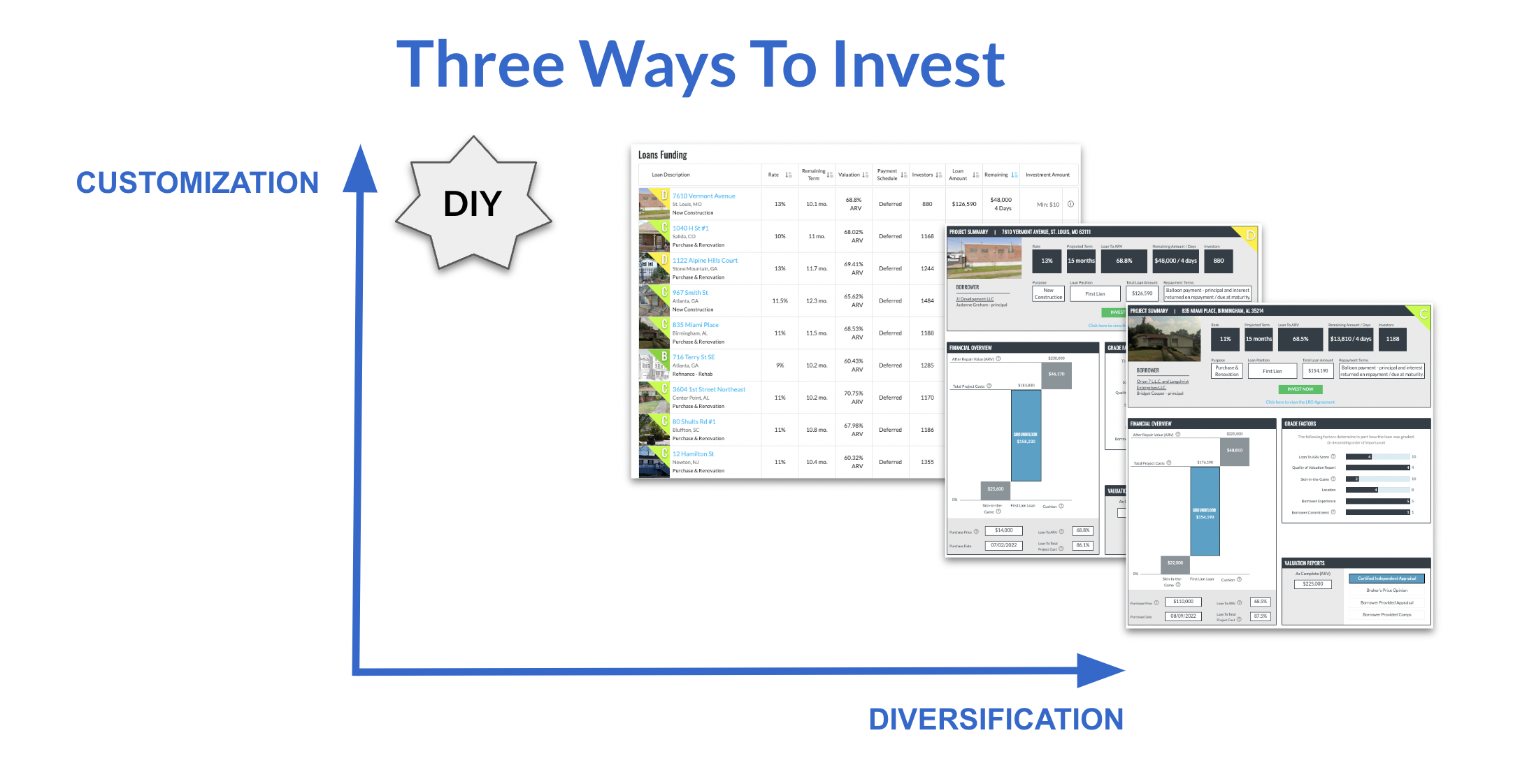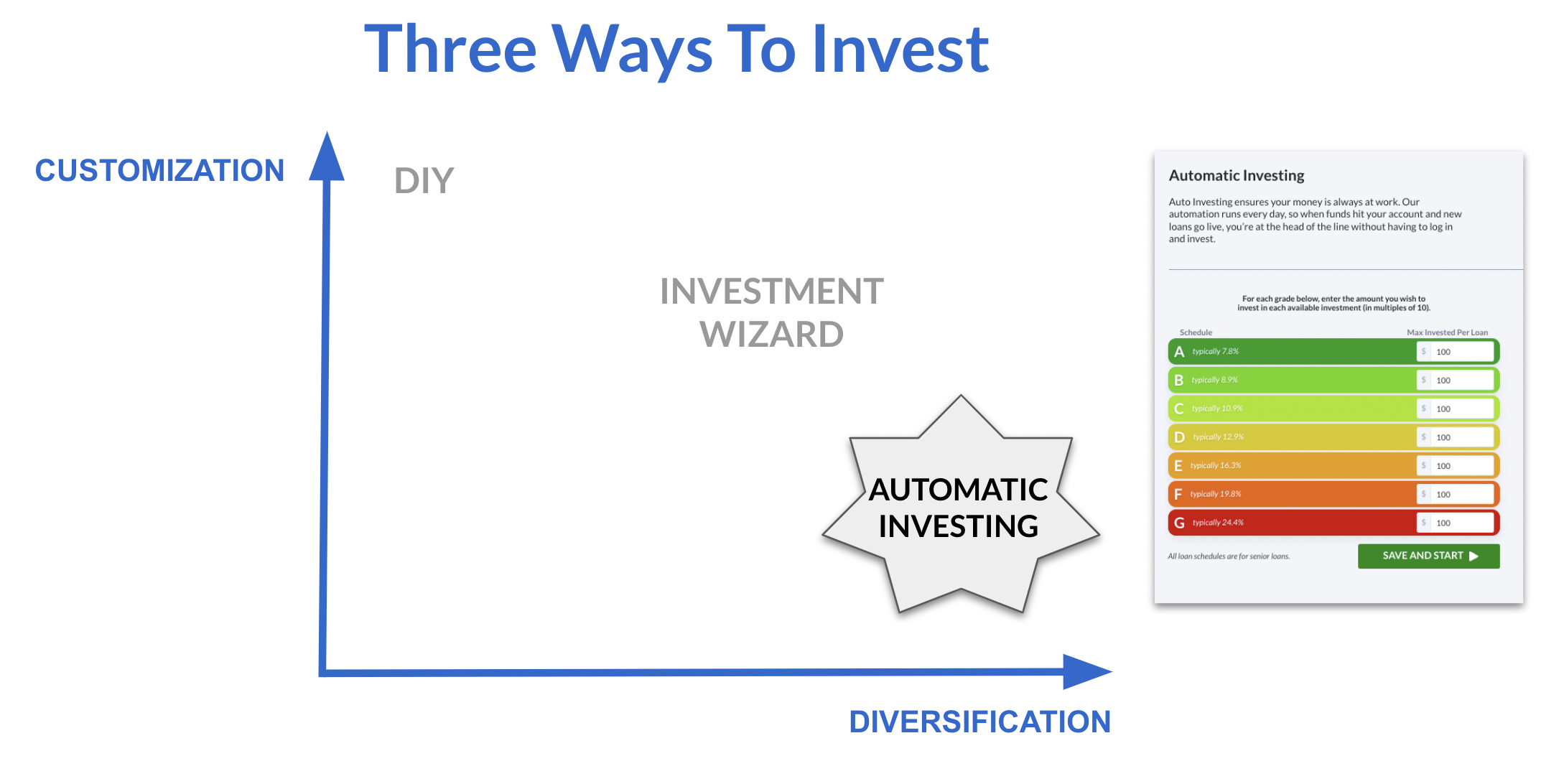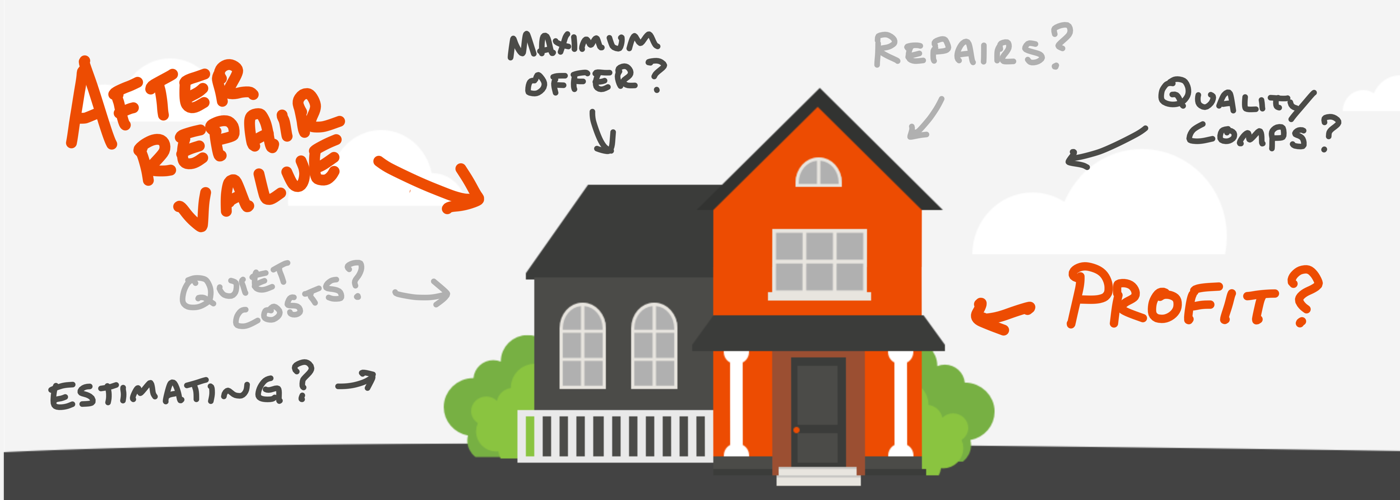When it comes to retirement planning, diversification is key. This is especially true when it comes to investments. While stocks and bonds have their place, investing in real estate can provide a number of advantages, including the potential for consistent passive income with Groundfloor and hedging against inflation.
How Groundfloor Can Help Your Retirement in 2023
Groundfloor is proud to provide customers with the ability to shape their portfolios based on individual needs and wants. We evaluate each loan's risk level through an in-depth analysis of key factors, most notably borrower experience. Additionally, we consider how much our borrowers are putting forth and estimates for after repair value or exit price when determining lending amounts - all so you can invest smartly!
Our auto Investing makes investing painless. Just decide the maximum you want to spend each loan letter grade, and our tool will do all the work for you - seeking out available loans while staying in line with your criteria! Put it on autopilot today and rest assured that your investments are handled by a reliable source.

With each loan underwritten by Groundfloor, our cutting-edge grading algorithm assigns a letter grade from A to G based on the risk associated with it. These grades help you determine which projects best meet your desired criteria.
The grading algorithm factors in the following indicators that take into account:
- The valuation and strength of a particular project
- The experience and risk profile of the borrower.
Choose Your Property Carefully with Groundfloor.
With Groundfloor, you can invest in real estate confidently knowing your questions have been answered. Whether buying a property on your own or with others, consider the location and expected maintenance for long-term success. Look into areas where growth is promising; that way demand won't drop off later down the line. If repairs go beyond what you’re able to manage yourself, account for those expenses accordingly – it could make all the difference when investing wisely!
Research Market Conditions, Plan and Cash Flow
The first step in choosing your real estate property is to research the market conditions in the area where you plan to invest. You need to understand the current trends, as well as any potential risks associated with the market. Look at home prices, population growth, and other factors that could affect the value of your investment. This will help you determine whether or not it’s a good time to buy and if there is potential for appreciation down the line.
Once you’ve done your research and identified a real estate opportunity that makes sense for you, it’s time to create a plan for how you will manage it over time. Determine whether you want to manage the property yourself or hire a professional team; this decision will largely depend on how much time and effort you are willing to invest in your property management strategy. Additionally, create an exit strategy that outlines when and how you’ll eventually sell the property—this will ensure that when the time comes, you have already thought through what needs to be done.
Real estate investments typically require large upfront costs that need to be financed properly if they are going to be successful over time. A key part of investing in real estate is making sure that all financial aspects are taken care of ahead of time—you don’t want any surprises down the line! Consider both traditional financing options such as mortgages as well as alternative financing methods such as private lenders or crowdfunding platforms.
Analyze the Property Value, Inspection and Set a Solid Budget
Once you have researched the local market conditions, it’s time to analyze the value of each property you are considering. Look at features such as square footage, age of construction, materials used, amenities offered on-site (such as pools or clubhouses), and any special features that may add value for potential buyers or renters. You should also look into any recent upgrades or repairs that have been made on the property and how much they cost. This information will help you determine whether or not it is a good investment opportunity and if it has the potential for future appreciation in value over time.

Another step in choosing your real estate property is hiring a professional inspector who can take an objective look at all aspects of the building before you make an offer on it. A professional inspector can identify any structural issues that could reduce its value or require costly repairs down the line and ensure that it meets all safety standards before closing on it. Additionally, an inspector can give valuable feedback about how well-maintained certain areas of the building are and provide advice about how best to maintain them going forward so that they retain their value over time.
Real estate investments require capital upfront—in other words, you need money to make money. Before beginning any investment, it's important to have a solid budget and plan for how much you are willing and able to spend on purchase and maintenance costs. Knowing what you can afford upfront will help ensure that no unexpected costs arise during the process of purchasing or maintaining your investment property.
Real Estate Investments and Taxes
Utilize Tax Benefits. Investing in real estate has several tax benefits for investors looking for additional sources of income during retirement. For example, depreciation deductions can help offset some of the expenses associated with owning rental properties, allowing investors to save more money over time. Additionally, investing in real estate also offers several other tax benefits such as deductions on mortgage interest payments and capital gains tax exceptions when selling rental properties after a certain period of time has passed.
Real estate investors can take advantage of many tax deductions and credits that are available to them. These include deductions for depreciation and repairs, as well as credits for energy efficiency improvements and property taxes. The investor must be sure to track these expenses in order to take full advantage of these deductions and credits when filing their taxes each year.
When an investor sells a property at a profit, they will owe capital gains tax on the difference between the purchase price and sale price. Capital gains tax is based on the investor's income level and can range from 0% to 20%. It is important for investors to understand their potential capital gains liability so that they can factor it into their investment decisions.
When it comes to retirement planning, investing in real estate can be smart. There are a number of different ways to do it, each with its own set of risks and rewards. By doing your homework and selecting the option that best aligns with your goals, you can add real estate to your retirement portfolio in a way that makes sense for you.



